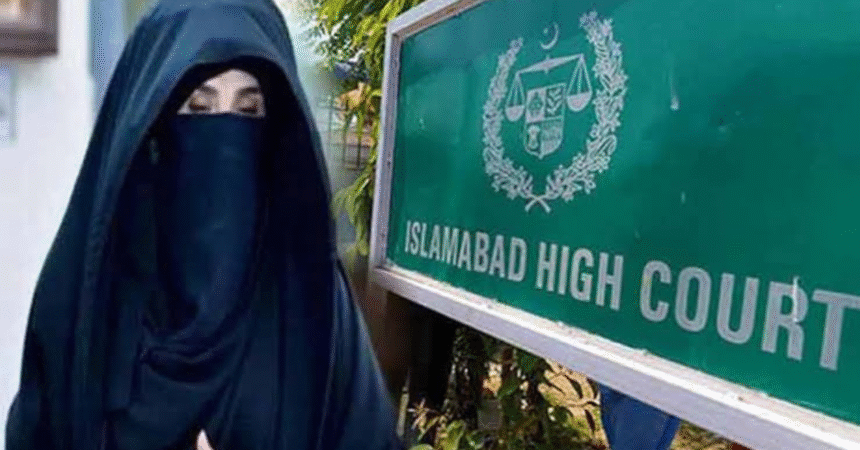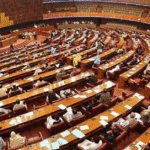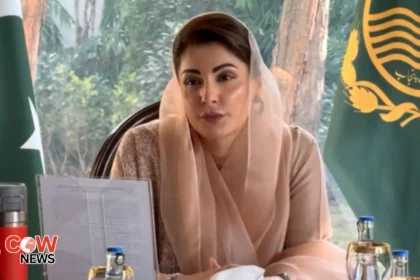The Islamabad High Court (IHC) has recently made headlines by issuing a notice to the Federal Investigation Agency (FIA) concerning the bail application of Bushra Bibi, the former first lady of Pakistan. This development comes amid ongoing legal proceedings linked to the Toshakhana case, which has significant implications for the political landscape in the country. The case underscores broader themes of accountability, governance, and the intersection of law and politics in Pakistan.
- Background of the Toshakhana Case
- Legal Proceedings and Arrest
- Initial Hearing at the IHC
- The Role of the FIA
- Broader Implications for Accountability
- The Political Landscape
- Public Sentiment
- Legal Strategy
- Future Hearings and Expectations
- The Impact of Social Media
- Navigating Misinformation
- Judicial Independence
Background of the Toshakhana Case
The Toshakhana case revolves around allegations that Imran Khan and his wife, Bushra Bibi, engaged in corrupt practices related to gifts received during Khan’s tenure as prime minister. Toshakhana, a term that refers to the state treasury in Pakistan, is where valuable gifts received by public officials are deposited. According to Pakistani law, public officials are required to declare these gifts and may only retain items under certain conditions.
The allegations include claims that Khan and Bibi failed to properly declare gifts received from foreign dignitaries, leading to accusations of misappropriation and corruption. This case has become emblematic of the ongoing struggle for accountability in Pakistan, particularly concerning its political elite.
Legal Proceedings and Arrest
Bushra Bibi and Imran Khan were arrested on July 13, 2024, just hours after they had been acquitted in a separate case concerning the validity of their marriage. This rapid succession of legal troubles has raised eyebrows and sparked public debate over the integrity of the legal system and its use as a tool for political maneuvering.
Prior to their arrest, the Islamabad district and sessions court had convicted the couple in the Iddat case, resulting in a seven-year prison sentence and a fine of Rs 500,000 each. The court ruled that their marriage contract (nikah) was fraudulent, leading to widespread media coverage and public scrutiny. However, this conviction was overturned, allowing the couple to seek a fresh start, only to be immediately confronted by the Toshakhana allegations.
Initial Hearing at the IHC
During the initial hearing of Bushra Bibi’s bail application at the IHC, Justice Miangul Hassan Aurangzeb presided over the proceedings. The former first lady’s lawyer presented her case, arguing that she had been in jail for over two months and that her bail plea had been rejected by the trial court. He emphasized that the lengthy detention without trial was unjust and contrary to the principles of fair justice.
Justice Aurangzeb, while acknowledging the arguments made by the defense, rejected the request to expedite the hearing. He stated, “Let the things move in the routine,” suggesting that the court would follow its procedural norms. This statement indicates the court’s desire to maintain the integrity of the judicial process, even in cases that draw considerable public interest.
The Role of the FIA
The IHC’s notice to the FIA is significant. As the primary agency responsible for investigating corruption cases in Pakistan, the FIA’s involvement is crucial for ensuring accountability. The court has asked the FIA to provide a formal response to Bushra Bibi’s bail application by the following week. This response will likely contain the agency’s perspective on the evidence presented in the Toshakhana case and its justification for opposing bail.
The FIA has previously faced criticism for its handling of high-profile cases. Critics argue that the agency is sometimes used for political purposes rather than for impartial law enforcement. Therefore, the upcoming response from the FIA will be closely scrutinized by legal experts and political analysts alike, as it could reveal the extent to which political considerations are influencing the judicial process.
Broader Implications for Accountability
The Toshakhana case, along with the surrounding legal troubles faced by Imran Khan and Bushra Bibi, raises broader questions about the state of accountability in Pakistan. For many citizens, the case reflects a pattern of selective enforcement of the law, where political figures from certain parties face significant scrutiny, while others may escape similar fates.
The public’s perception of justice can have far-reaching consequences. When citizens believe that the legal system is being manipulated for political gain, trust in institutions diminishes. This erosion of trust can lead to apathy among the electorate and a reluctance to engage in the political process, ultimately undermining democracy.
The Political Landscape
The Toshakhana case comes at a particularly tumultuous time in Pakistani politics. Imran Khan, once a towering figure in the political arena, has faced multiple legal challenges since his ousting from office in April 2022. His political party, Pakistan Tehreek-e-Insaf (PTI), has been embroiled in a series of controversies that have tested its resilience.
As the legal battles continue, the implications for Khan and his party remain uncertain. Supporters argue that the allegations against Khan and Bushra Bibi are politically motivated, intended to discredit them and weaken their political standing. Detractors, on the other hand, argue that accountability must apply to all, regardless of political affiliation.
Public Sentiment
Public opinion regarding the Toshakhana case and the legal proceedings against Bushra Bibi is divided. Some view the situation as an essential step toward holding political leaders accountable for their actions. Others see it as a targeted attack on Khan and his family, suggesting that the legal system is being weaponized for political purposes.
Media coverage of the case has amplified these sentiments. The narratives presented by various news outlets often reflect their own political leanings, further polarizing public opinion. In a country where politics and media are closely intertwined, the framing of legal issues can significantly influence how they are perceived by the general populace.
Legal Strategy
Bushra Bibi’s legal team is likely to adopt a multi-faceted approach in their bid for bail. They may argue not only for her release on humanitarian grounds but also challenge the validity of the evidence presented against her. By focusing on procedural irregularities or questioning the integrity of the FIA’s investigation, the defense can create reasonable doubt about the charges.
Additionally, the legal team may highlight the broader implications of continued detention. They can argue that prolonged incarceration without trial not only harms Bushra Bibi but also sets a dangerous precedent for the treatment of political figures in Pakistan. Such arguments can resonate with judges who are mindful of the principles of justice and fairness.
Future Hearings and Expectations
As the IHC prepares for future hearings regarding Bushra Bibi’s bail application, several factors will come into play. The responses from the FIA and the subsequent legal arguments presented by both sides will be critical in shaping the court’s decision. Legal experts suggest that the IHC is likely to prioritize maintaining the integrity of the judicial process, which may result in a more deliberative approach to the case.
Public anticipation surrounding the case remains high. The outcome will not only affect Bushra Bibi but also have significant repercussions for Imran Khan and the PTI. A favorable ruling for Bibi could bolster her political standing and provide a much-needed boost for the party, while a rejection could further entrench perceptions of political victimization.
The Impact of Social Media
In today’s digital age, social media plays a significant role in shaping public discourse around high-profile cases like the Toshakhana investigation. Platforms such as Twitter, Facebook, and Instagram have become battlegrounds for competing narratives, where supporters and detractors of Imran Khan and Bushra Bibi engage in heated debates.
The ability to share information instantaneously has both positive and negative consequences. On one hand, social media allows for broader awareness of legal issues and political corruption, enabling citizens to hold their leaders accountable. On the other hand, it can contribute to the spread of misinformation, as unverified claims circulate rapidly, further polarizing public opinion.
Navigating Misinformation
Legal teams must navigate this landscape of misinformation while advocating for their clients. Crafting a clear and coherent narrative is essential to counter the potential damage caused by false claims. Engaging with the media strategically can help shape public perception in favor of the accused.
Judicial Independence
The situation surrounding Bushra Bibi’s bail application raises important questions about judicial independence in Pakistan. The judiciary is tasked with upholding the rule of law and ensuring fair trials, even in cases that attract significant public interest. As the IHC examines the merits of the bail application, its decisions will be scrutinized for signs of impartiality or political influence.
A transparent and fair judicial process is critical for maintaining public trust in the legal system. If the IHC is perceived as acting independently and basing its decisions on legal merits rather than political pressures, it can help restore faith in the judiciary.
The IHC’s notice to the FIA regarding Bushra Bibi’s bail application represents a pivotal moment in the ongoing Toshakhana case. The proceedings not only hold significant implications for the former first lady and her husband but also reflect broader themes of accountability and the relationship between law and politics in Pakistan.
As the case progresses, the responses from the FIA and subsequent legal arguments will play a crucial role in determining the outcome. The public will undoubtedly be watching closely, as the implications extend beyond the courtroom and into the heart of Pakistan’s political landscape.
Ultimately, this case serves as a reminder of the complex interplay between justice, politics, and public perception in a country striving for accountability and democratic governance.
#BushraBibi #IHC #ToshakhanaCase #FIA #ImranKhan #Accountability #PakistanPolitics #JudicialIndependence







